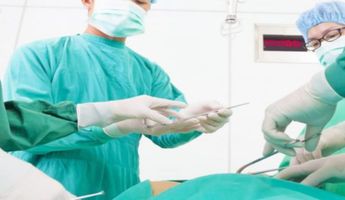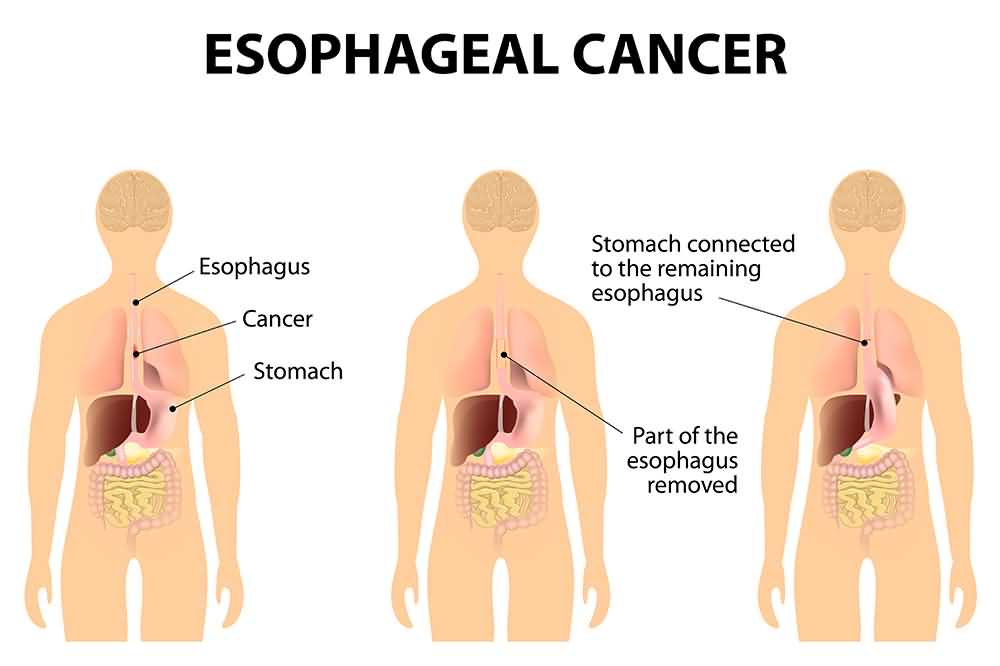Esophageal Cancer Surgery in Russian Federation
Search and Compare the Best Clinics and Doctors at the Lowest Prices for Esophageal Cancer Surgery in Russian Federation

Find the best clinics for Esophageal Cancer Surgery in Russian Federation
No clinics available
India offers the best prices Worldwide
Price: $ 4,140

- Home
- Russian Federation
WHY US?
At Medijump, we're making medical easy. You can search, compare, discuss, and book your medical all in one place. We open the door to the best medical providers worldwide, saving you time and energy along the way, and it's all for FREE, no hidden fees, and no price markups guaranteed. So what are you waiting for?

Free

Best Price

Widest Selection

Risk-Free
What you need to know about Esophageal Cancer Surgery in Russian Federation

Esophageal cancer occurs anywhere along the esophagus (the long and hollow tube that runs from the throat to the stomach). Surgery for esophageal cancer is often used to try to remove cancer and some of the normal tissue that surrounds it for some earlier stage cancers. In some cases, the surgery may be combined with other types of treatment, such as radiation therapy and/or chemotherapy.
What does a Esophageal Cancer Surgery Procedure Involve?
Esophageal cancer surgery is performed under general anesthesia. The surgery is done using the standard open technique in which your surgeon makes one large incision in the chest or abdomen, or minimally invasive where your surgeon makes several small incisions. During the surgery, your surgeon will try to remove the tumor and some healthy tissue that surrounds it or removes some or most of the esophagus (esophagectomy). In some cases, a small upper portion of your stomach is removed as well (esophagogastrectomy).
How Long Should I Stay in Russian Federation for a Esophageal Cancer Surgery Procedure?
You will be staying 7 to 10 days in the hospital following the surgery, but plan to stay in Russian Federation for 10 to 14 more days after you are discharged from the hospital. During your stay in the country, you will be under a close monitor of your surgeon. Stitches are usually removed within 14 days.
What's the Recovery Time for Esophageal Cancer Surgery Procedures in Russian Federation?
Esophageal cancer surgery is not a simple procedure, therefore, it may require long recovery time. You should not do any strenuous activity (including intense exercise and heavy lifting) for about 8 weeks after the surgery and you will need tube feeding (enteral nutrition) for 4 to 6 weeks to ensure adequate nutrition. Talk to your doctor about your recovery timeline, including when you can return to work and resume your daily activities.
What sort of Aftercare is Required for Esophageal Cancer Surgery Procedures in Russian Federation?
Since your stomach size is likely reduced after the surgery, you need to adjust your diet and eat more frequently in smaller quantities. Your doctor may recommend follow-up care to prevent complications, including lung therapy, nutritional assessments, pain management, and psychosocial care. You also need to attend regular follow-up checkups to make sure the tumor has not returned and there are no new tumor growths.
What's the Success Rate of Esophageal Cancer Surgery Procedures in Russian Federation?
Surgery for esophageal cancer is known to be highly successful. Patients who undergo surgery are more likely to survive long term than those who did not. However, like all serious operations, esophageal cancer surgery has some side effects and risks, including lung complications, voice changes, infection, bleeding, cough, leakage from the surgical connection of the stomach and the esophagus, acid or bile reflux, dysphagia, and reaction to anesthesia.
Are there Alternatives to Esophageal Cancer Surgery Procedures in Russian Federation?
In some cases, your doctor may recommend chemotherapy (to kill cancer cells using drugs) or radiation therapy (to kill cancer cells using high-powered X-ray beams) along with or instead of surgery. Make sure to discuss with your doctor, the best option for you as well as the risk and benefit of each procedure.
What Should You Expect Before and After the Procedure
Esophageal cancer causes symptoms such as dysphagia, unintentional weight loss, chest pain, heartburn, coughing, and hoarseness. It may interfere with your ability to perform your daily activities and it can lead to dangerous complications. After the surgery, some of your symptoms should be relieved and your quality of life will be improved significantly.
Whilst the information presented here has been accurately sourced and verified by a medical professional for its accuracy, it is still advised to consult with your doctor before pursuing a medical treatment at one of the listed medical providers
No Time?
Tell us what you're looking for and we'll reachout to the top clinics all at once
Enquire Now

Popular Procedures in Russian Federation
Prices Start From $131

Prices Start From $47

Recommended Medical Centers in Russian Federation for procedures similar to Esophageal Cancer Surgery

- Interpreter services
- Translation service
- Religious facilities
- Medical records transfer
- Medical travel insurance
- Health insurance coordination
- TV in the room
- Safe in the room
- Phone in the room
- Private rooms for patients available

- Interpreter services
- Translation service
- Religious facilities
- Medical records transfer
- Medical travel insurance
- Health insurance coordination
- TV in the room
- Safe in the room
- Phone in the room
- Private rooms for patients available

- Interpreter services
- Translation service
- Religious facilities
- Medical records transfer
- Medical travel insurance
- Health insurance coordination
- TV in the room
- Safe in the room
- Phone in the room
- Private rooms for patients available
Esophageal Cancer Surgery in and around Russian Federation
The Russian Federation, or Russia, is a transcontinental country that stretches over a vast expanse of Eastern Europe and northern Asia. Once a mighty tsarist empire and a communist superpower, this massive country is enigmatic, intimidating, and fascinating all at the same time. It has everything, from the idyllic countryside and historic cities to scenic beauty and artistic riches. Today, Russia is a famous medical tourism destination. The number of medical tourists seeking high-quality healthcare continues to double each year. These medical tourists mainly come from Asian countries, such as China, South Korea, India, Japan, and Vietnam. They come to receive a wide range of medical care, with IVF treatment, dental services, cosmetic surgery, and cardiovascular surgery being the most sought-after.
Popular Parts of the Russian Federation
Most visitors are drawn to the western part of the country, particularly to Moscow and St. Petersburg. Moscow, the capital of Russia, is popular for its show-stopping architecture, rich history, amazing culture, and great food. Some of the most famous landmarks are the St. Basil’s Cathedral, the Red Square and the Lenin Mausoleum, the Moscow Kremlin, The Tretiakov Gallery, and the Wooden Palace of Tsar Alexei Mikhailovich. St. Petersburg, Russia’s second city and imperial capital, is one of the most gracious cities in Europe. People come to this city to visit the State Hermitage Museum, the Grand Palace, and Catherine Park.
Weather and Climate in the Russian Federation
There are four seasons in Russia. December to February are the winter months, which is cold and snowy, with short days and long nights. The average temperature during this season is around -10°C to 3°C. Spring comes in March, bringing warmer, but rainy weather. Summer, from June to August, is hot and humid, with an average temperature of around 12°C to 26°C. The weather can be quite unpredictable in the summer, and downpours can come unexpectedly. Autumn is from September to October and is warm and pleasant.
Getting around in the Russian Federation
The largest airport in Russia that receive the most international flights is Sheremetyevo Alexander S. Pushkin International Airport in Moscow. It serves both domestic and international flights to many cities around the globe. Since Russia is the world’s largest territory, internal flights are the fastest and most convenient way to get around. Trains have an extensive network, and, with many comfortable overnight services, is considered as the best way to get around. Buses are a great option to travel to the areas not covered by the train. Some really remote destinations may only be reached by private cars or taxis. Taxis are relatively inexpensive and widely available.
Tourist Visas in the Russian Federation
Nationals of 62 nations, including Brazil, South Africa, South Korea, North Macedonia, and Hong Kong, can visit and stay in Russia without a visa for a period of 14 to 90 days. Citizens of other countries not listed in the visa exemption agreement need a visa to enter. Electronic visas are available for citizens of several countries, including all EU countries, China, and India.
Additional Information
- Local Currency: Russian uses the Russian ruble (RUB) as its official currency. 1 USD is equivalent to 77.16 RUB.
- Money & Payments: The easiest way to get rubles is by using ATMs, which is available throughout the country. Major credit and debit cards, including MasterCard and Visa, are accepted in larger hotels and restaurants, but cash is more reliable. Some places may offer to accept euros and dollars, but this is illegal. Tipping is expected, around 10% to 15% of the bill. Always tip in cash and give it directly to the waiter.
- Local Language: There are over 100 minority languages spoken in Russia, but the official and most widely spoken language is Russian. English is spoken to some degree, especially in major cities.
- Local Culture and Religion: Most of Russia’s population adheres to Christianity, with the Russian Orthodox Church being the biggest Christian denomination. There are also small groups of Muslims, Buddhists, and Jewish.
- Public holidays: New Year’s Day, Orthodox Christmas Day, Defender of the Fatherland Day, Victory Day, Russia Day, and Unity Day are some of the most important public holidays in Russia.
Popular Searches
- Plastic Surgery in Thailand
- Dental Implants in Thailand
- Hair Transplant in Thailand
- Breast Augmentation Thailand
- Gastric Sleeve in Thailand
- Gender Reassignment Surgery in Thailand
- Laser Hair Removal in Bangkok
- Botox in Bangkok
- Dermatology in Bangkok
- Breast Augmentation in Bangkok
- Coolsculpting in Bangkok
- Veneers in Turkey
- Hair Transplant in Turkey
- Rhinoplasty in Turkey
- Stem Cell Therapy in Mexico
- Rhinoplasty in Mexico
- Liposuction in Mexico
- Coolsculpting in Tijuana
- Rhinoplasty in Korea
- Scar Removal in Korea
- Gastric Sleeve in Turkey
- Bone Marrow Transplant in India
- Invisalign in Malaysia
- Plastic Surgery in the Dominican Republic
- Tummy Tuck in the Dominican Republic
- Plastic and Cosmetic Surgery in Poland
- Rhinoplasty in Poland
- Hair Implant in Poland
- Dental Implants in Poland
- IVF in Turkey